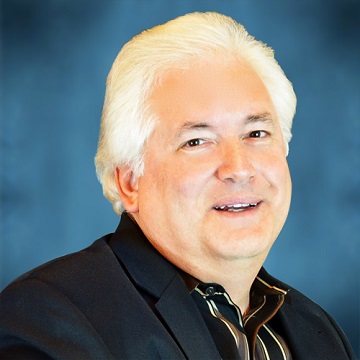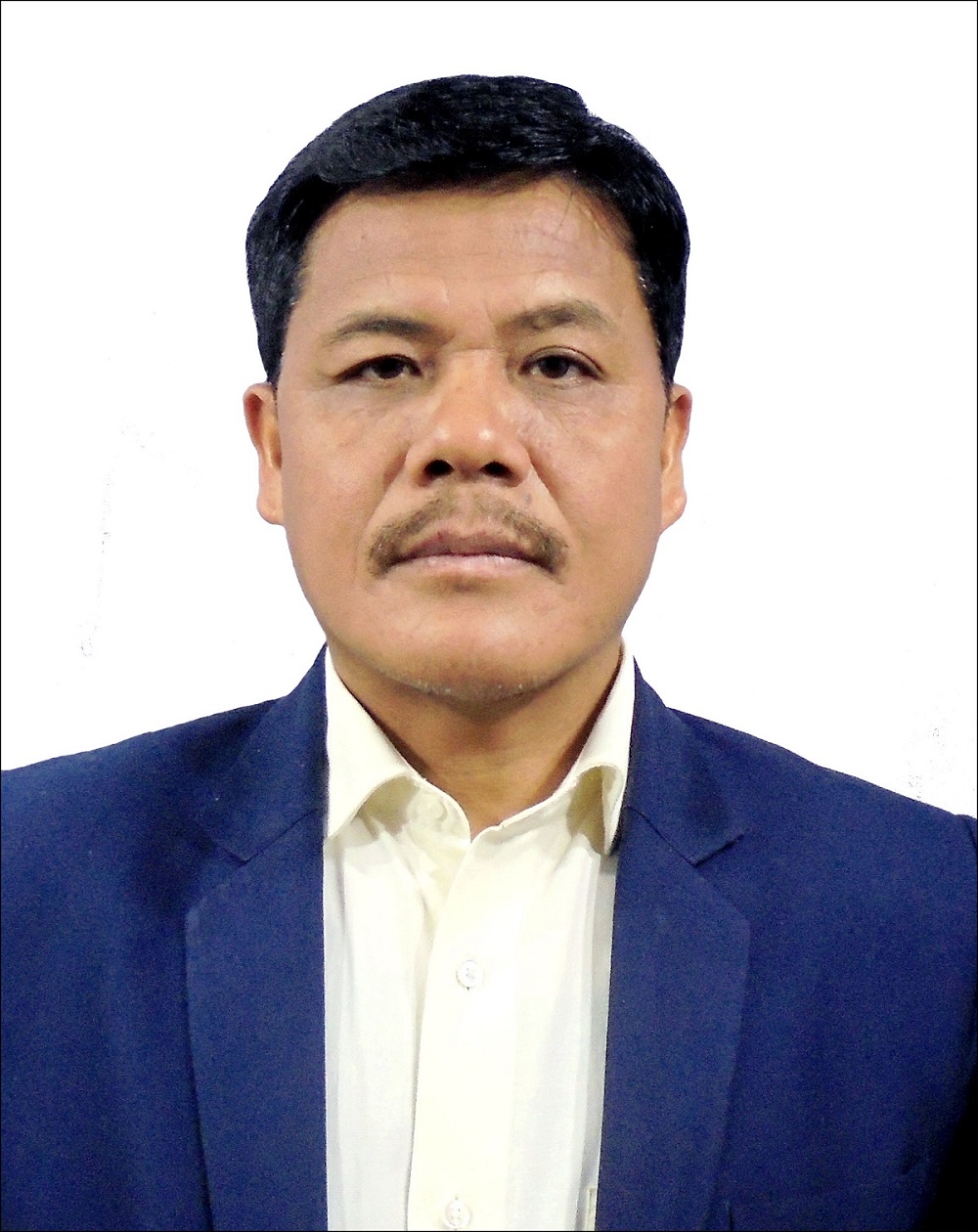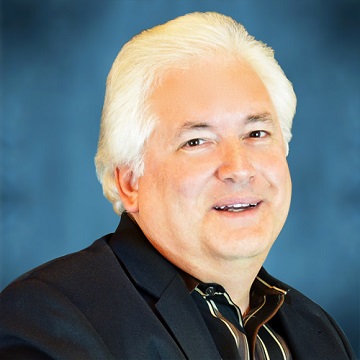Scientific Program
Keynote Session:
Title: RNG and the renewable fuel standard/low carbon fuel standard: The current driver in US biogas market
Biography:
Experienced vice president of engineering with a demonstrated history of working in the renewables and environment industry. Skilled in waste, sustainable development, environmental compliance, environmental issues, and biogas. strong entrepreneurship professional with a BS and MS focused in Civil Engineering from Michigan State University.
Abstract:
The Workshop will address the current status of Biogas and Renewable Natural Gas (RNG) development in the United States and the describe in summary fashion the Renewable Fuel Standard (RFS) and the Low Carbon Fuels Standard (LCFS). The summary will discuss how the programs operate, how various projects can participate and the methodologies for receiving income under each program.
Once the basis of the two programs is understood, the workshop will look at several projects currently operating in the United States and how these projects are providing RNG for transportation and pipeline injection. One case in particular to be discussed will focus on a large dairy complex providing RNG for transportation of milk to several bottling locations in the Midwest. The Workshop will conclude with a discussion of new projects and expected path forward with both programs.
Title: The development of sorghum bran based bio-refinery process
Biography:
Oyenike Makanjuola obtained her B.Sc in Bowen University, Nigeria in 2011 and obtained her M.Sc at the University of Huddersfield in 2014 with a Distinction. As a result, she was awarded the Vice chancellor Scholarship for her PhD programme at the University of Huddersfiled. Oyenike is currently a 4th year PhD student in the School of Applied Sciences, the University Of Huddersfield. Her research area focuses on the conversion of sorghum waste biomass and wheat straw into value added products.
Abstract:
The project aims to develop a sorghum waste biomass based bio-refinery process to convert sorghum bran into value added products. Sorghum bran is a food waste rich in starch and cellulose, making it a suitable substrate for bio-refinery process development. Solid state and submerge fungal fermentations were carried out first to culture A. awamori for the production of gluco-amylase. Then the enzyme solutions were used for the enzymatic hydrolysis of sorghum bran for the production of a glucose rich fermentation medium. The impact of pH, temperature, yeast extract, mineral content and inoculation ratio on enzyme activities were investigated in both solid state fermentation and submerged fermentation. Response Surface Methodology (RSM) was used to further optimize the gluco-amylase activity. The hydrolysis efficiency of sorghum bran using the enzyme solution was evaluated. Sorghum bran hydrolysate was used as substrate for the production of bio-ethanol demonstrating the feasibility of converting a sorghum waste biomass to value added products via a sustainable and environmental friendly process.
Title: Biofuel and its potential towards greener and safer future
Biography:
Oyenike Makanjuola obtained her B.Sc in Bowen University, Nigeria in 2011 and obtained her M.Sc at the University of Huddersfield in 2014 with a Distinction. As a result, she was awarded the Vice chancellor Scholarship for her PhD programme at the University of Huddersfiled. Oyenike is currently a 4th year PhD student in the School of Applied Sciences, the University Of Huddersfield. Her research area focuses on the conversion of sorghum waste biomass and wheat straw into value added products.
Abstract:
The rapid escalation of fuel prices, shortage of conventional petroleum based fuels and depleting hydrocarbon reserves of the world have forced to look for alternatives fuels to cater the ever increasing demands of fuel in transportation sector. In the present study biodiesel were produced from Messua ferrei and Waste cooking oil locally available in North Eastern Region of India. The physio-chemical characteristics were determined and compared with conventional diesel fuel as per ASTM Standards. The biodiesel produced from two feedstock's were blended with different proportion by volume to test in a single cylinder four stroke diesel engine. After the engine test, it was observed that there is significance improvement in engine performance and reduction in exhaust emissions while using biodiesel fuel in diesel engine. However there is slight increased in Nox emission. Thus biodiesel produced from non-edible vegetable oils can be use in existing conventional diesel engine satisfactorily without any hardware modifications.
Title: Biomass:An underrated and deprioritized energy potential
Biography:
Abstract:
Oral Session 1:
- Advanced Biofuels | Biomass Technology

Chair
Pradip Lingfa
North Eastern Regional Institute of Science and Technology, India
Title: Agricultural waste to energy toward biomass community planning
Biography:
Abstract:
Biomass resources are abundant, and especially the large amount of agricultural waste, such as cow manure, rice straw, rice husk, etc., is generated in Hokkaido, Japan. Since a law for feed-in tariff (FIT) was enacted, the number of biogas plants for cow manure has been increasing to produce electricity. In addition, new businesses related to the biogas plants have been launched. For example, in Shikaoi town, mango is cultivated and sturgeon is cultured by using heat generated from biogas. In addition, biogas is converted to hydrogen to be stored for a long period. On the other hands, 60% of rice straw in Japan is incorporated into paddy fields and naturally degrades into the paddy soils, following the 1997 ban of open field burning of rice straw, although some rice straw is effectively used already. Rice straw pellets were produced commercially in Nanporo town. It was the first case in Japan. The rice straw pellets are used at a public bath (biomass boiler) and public facilities (pellet stove). I will introduce successful examples, including the examples other than the above, for agricultural waste to energy in Hokkaido and discuss what kinds of benefits have been generated for local community.
Title: Societal harm arising from environmental toxicity
Biography:
Mr. Aijuka Nicholas is a final year student of Bachelor’s of Science in Civil Engineering at Makerere University Kampala Uganda in the department of Civil and environmental Engineering. I have been focusing on environmental field throughout my course of study and I have authored articles for some international waste Journals.
Abstract:
Many societies in Uganda are increasingly suffering the repercussions that have been arising from rampant air pollution, increase in contamination of water and the land for tilling with many refuses full of toxins from manufacturing plants.
In the rural set up of the countryside, many of the natives have quite often blamed it on government for lack of strict laws and penalties on the perpetuators of environmental laws which has consequently led to high health problems like the airborne diseases because of polluted air, low fertility rate of the soils which has adverse impacts on production levels yet Agriculture is the biggest income earner for many homesteads in Uganda.
Generally, this paper exudes the environmental toxicity and the harm it has caused to the society. This is through getting to the directly implicated societies like those in Hima kasese where there have been clear indicators of what this paper seeks to bring to light and what other civil society organizations have been able to assess with help of the community members.
The unbelievable challenges faced during the execution of the sustainable programmes and public sensitization are to be put to light in this paper with the collection of evidence and the law enforcement procedures.
Title: Biomass and Biogas yield of Maize as affected by nitrogen rates with varying harvesting under semi-arid condition of Pakistan
Biography:
Dr. Athar Mahmood is an agronomist and has expertise in the evaluation of different crops biomass production and bio-energy production.he has vast experience of research as well as teaching at university level. He is currently teaching as Assistant Professor in the Department of Agronomy at world-renowned University named as University of Agriculture Faisalabad Pakistan.
Abstract:
Maize is an indispensible crop cultivated globally, being C4 crop it is more photo synthetically active grown for food, animal feed and for bio-energy production. The present study was designed to investigate the effect of nitrogen rates (NR) and harvesting time (HT) on biomass, chemical composition and biogas production of maize grown under semi arid condition of Pakistan. Results revealed that early harvesting decreased leaf area per plant as maximum value was found at 65 DAS followed by 55 DAS while lowest was produced at 45DAS. Among NR, higher level of N application of 200 kg ha-1 significantly enhanced leaf area per plant. The maximum chlorophyll contents (33.61%) were recorded at 45 DAS that was comparable with 55 DAS while the lowest chlorophyll contents (31.85%) were recorded at 65 DAS. Among NR, highest chlorophyll contents (35.02%) were observed when N was used @ 200 kg ha-1that was similar 150 per ha, whilst lowest chlorophyll contents (29.13%) by no N application. The delayed HT significantly enhanced biomass yield while lower yields were produced by early harvestings. Among NR highest biomass yield was obtained with N applied @ 200 kg ha-1that was same with 150 kg ha-1 whereas the lowest biomass yield was obtained when no N was applied. Regarding chemical composition, delayed harvesting clearly increased acid detergent fibers (ADF) and neutral detergent fiber (NDF). Regarding NR maximum ADF and NDF contents were recorded by applying higher N rates. In addition, advancing harvest time markedly enhanced protein contents of maize. Higher nitrogen application increased protein contents (11.84%) as highest value of protein contents was produced. With respect to biogas yield, advancing harvesting time increased the biogas yield while delayed harvesting clearly decreased the biogas yield of maize. NR rates also showed clear difference for biogas productivity as medium level application of N produced the maximum biogas as compared to other level tested in experiments.
Title: Production Of Biodiesel Using Bioreactant and its Utilisation in a DI Diesel Engine
Biography:
Dr. Dilip Kumar Bora is currently working as Associate Professor of Mechanical Engineering at Assam Engineering College, Guwahati, India. He received his Ph.D. and Masters from the Centre for Energy Studies, Indian Institute of Technology Delhi. His primary areas of research are Alternative fuels, Renewable energy, and Internal Combustion Engine.
Abstract:
In India, with rapid growth in industrialization and fast increasing number of automobiles, the demand for petroleum-based fuel is increasing at an accelerating rate. This will ultimately lead to greater scarcity and higher prices, which consequently adverse the economy of the country. For the developing country like India, the fuels of bi-origin can provide a feasible solution to this crisis. The fuels of bio-origin may be alcohol, vegetable oils, biomass and biogas. Some of these fuels can be used directly while others need to be formulated to bring the relevant properties close to conventional fuels. The power used in the agricultural and transportation sectors is essentially based on diesel fuels, it is therefore, essential that alternative to diesel fuels be developed. Development of bio-fuels as an alternative and renewable source of energy for transportation has become critical in the national effort towards maximum self-reliance the corner stone of our energy security strategy. Bio-fuels being environment friendly will help us to conform to stricter emission norms. Biodiesel can serve as a perfect alternative against fossil fuel like diesel. Biodiesel which is based on agricultural products are clean, renewable and is readily available. Biodiesel can be used to run compression ignition (CI) engines used in commercial sector, agricultural sector and domestic purposes. The present study was carried out to visualize the potential of biodiesel produced from non edible oil using bioalcohol as biorectant in a single cylinder, four stroke, direct injection diesel engine. Experimental results showed that there is a slight increase in brake specific fuel consumption as compared to diesel fuel. Thermal efficiency increased for lower blends of biodiesel and diesel fuel. In addition, it was found that there is a decrease in carbon monoxide in case of biodiesel and its blends.
Title: Sustainable development in Green Energies & the Environment
Biography:
Abdeen Mustafa Omer is an Associate Researcher at Energy Research Institute (ERI). He obtained both his Ph.D. degree in the Built Environment and Master of Philosophy degree in Renewable Energy Technologies from the University of Nottingham. He is a qualified Mechanical Engineer with a proven track record within the water industry and renewable energy technologies. He has been graduated from the University of El Menoufia, Egypt, BSc in Mechanical Engineering. His previous experience involved being a member of the research team at the National Council for Research/Energy Research Institute in Sudan and working director of research and development for National Water Equipment Manufacturing Co. Ltd., Sudan. He has published over 300 papers in peer-reviewed journals, 100 review articles, 5 books and 100 chapters in books.
Abstract:
The move towards a de-carbonized world, driven partly by climate science and partly by the business opportunities it offers, will need the promotion of environmentally friendly alternatives, if an acceptable stabilisation level of atmospheric carbon dioxide is to be achieved. This requires the harnessing and use of natural resources that produce no air pollution or greenhouse gases and provides comfortable coexistence of human, livestock, and plants. This article presents a comprehensive review of energy sources, and the development of sustainable technologies to explore these energy sources. It also includes potential renewable energy technologies, efficient energy systems, energy savings techniques and other mitigation measures necessary to reduce climate changes. The article concludes with the technical status of the ground source heat pumps (GSHP) technologies.
Title: Biofuels and Bioenergy is the major industry, reducing financial and energy crises, global poverty and hunger in the world like South Asia particularly in Pakistan.
Biography:
Abstract:
The aim of presentation consist of biofuels, bioenergy, industry financial and energy crises, global poverty and hunger were studded and reported that biofuels, Bioenergy is the major industry, creating income, employment, reducing financial crises, global poverty and hunger in the world like South Asia, particularly in Pakistan. The study reported that biofuels are the major industry can be produced from the plant, plant derived materials, renewable in nature, derived from biomass and used directly for heating known as biomass fuels. Biofuels can be broadly defined as solid, liquid, or gas fuel consisting of or derived from biomass. Biomass can also be used directly for heating or power-known as biomass fuel. Biomass is a biological material derived from living organism including plants and animals, known as agricultural biomass. The data recorded in Pakistan showed that a single cow is sufficient to provide a whole family with their milk and energy needs as biogas generated from the dung of cow. This is not only the cheapest source of energy but also an important alternative to replace the costly item like furnace oil, coal, natural gas used for non-renewable energy. It means bioenergy is the basic need of our life, the main source of poverty and without energy life is almost impossible. In view of the importance of bioenergy, the developing counties are still facing energy crises due to dense population and high dependence on non-renewable energy although a great potential of bioenergy is available. As reported, due to lack of energy nearly one billion people go to bed hungry each night. The total number of countries are available in the world are 224, consist of 49, developed countries 49, 149 developing countries, 4 observers states, 8 states with partial recognition and 14 unrecognized states but the South Asia comprises the countries of Pakistan, Bangladesh, India, Bhutan, Maldives, Nepal, and Sri-Lanka South Aisa is about one fifth of the world’s population, which is considered as the most densely populated region in the world. In the light of the above study, the industry of biofuels and bioenergy may be commercialized to generate income, create employment, reduce financial and energy crises as well as global poverty and hunger in the developing countries of the world like South Asia, particularly in Pakistan.
Title: Status of biogas upgrading in the US: Current projects and technologies
Biography:
Former owner of a construction company that built heavy industrial, commercial and power projects, including multiple wind projects across North America. Founded Star in 2008, leading to a transaction of 1,400 MW of wind developments in 2009.
Abstract:
This session will discuss several biogas upgrading technologies for the production of RNG currently in operation in the US. Specifically, the discussion will focus on operating projects and how different technologies are being utilized in different locations. This will include water wash, membrane and unique iron recovery systems for biogas generated from both Anaerobic Digestion Facilities and Landfill applications. The case studies presented will include source of biogas, technology in use and summaries various operational outcomes will be provided.
Title: Status of biogas upgrading in the US: Current projects and technologies
Biography:
Vice President of Biogas Engineering Mr. Sheff brings 34 years of experience in the design and operation of digesters and nutrient management systems. His first digester started in December of 1991 at a packing facility in Plainwell, Michigan. He has provided trouble shooting for digestion systems across the United States and Europe and is a professional engineer licensed in 4 states. Mr. Sheff will provide principal oversight to all anaerobic digestion projects.
Abstract:
This session will discuss several biogas upgrading technologies for the production of RNG currently in operation in the US. Specifically, the discussion will focus on operating projects and how different technologies are being utilized in different locations. This will include water wash, membrane and unique iron recovery systems for biogas generated from both Anaerobic Digestion Facilities and Landfill applications. The case studies presented will include source of biogas, technology in use and summaries various operational outcomes will be provided.
Oral Session 2:
- Workshop
Oral Session 3:
- Bioenergy & Applications | Biogas and Biodiesel | Nanotechnology in Biofuels

Chair
Pradip Lingfa
North Eastern Regional Institute of Science and Technology, India










